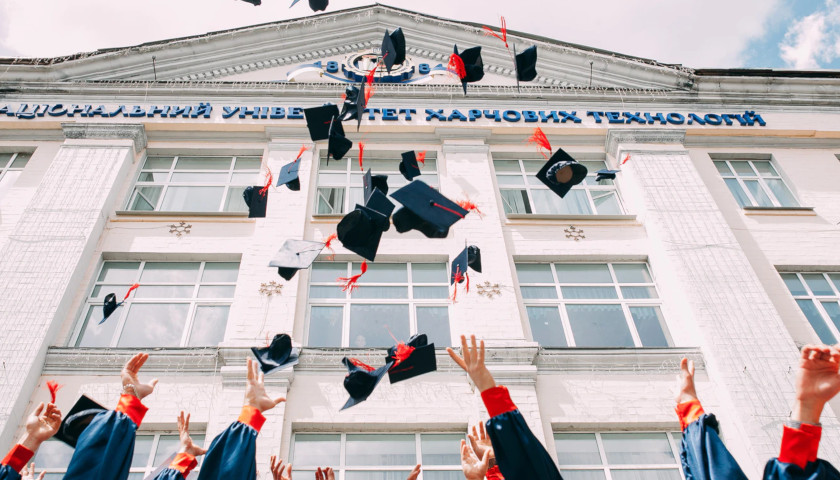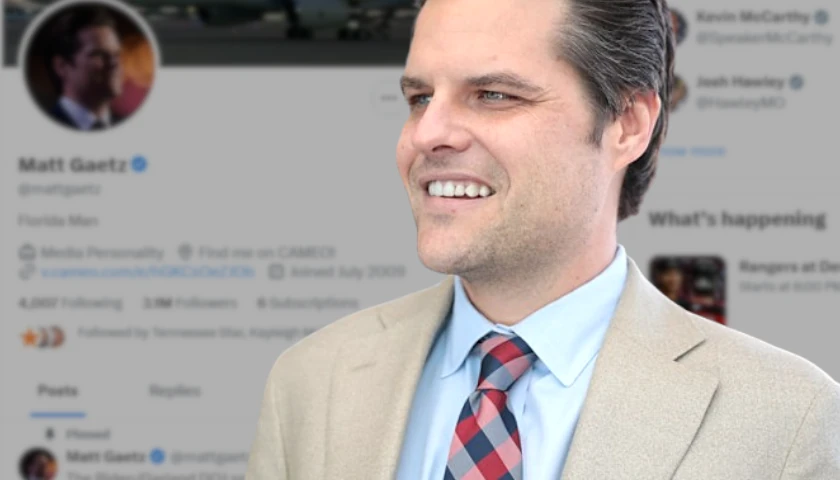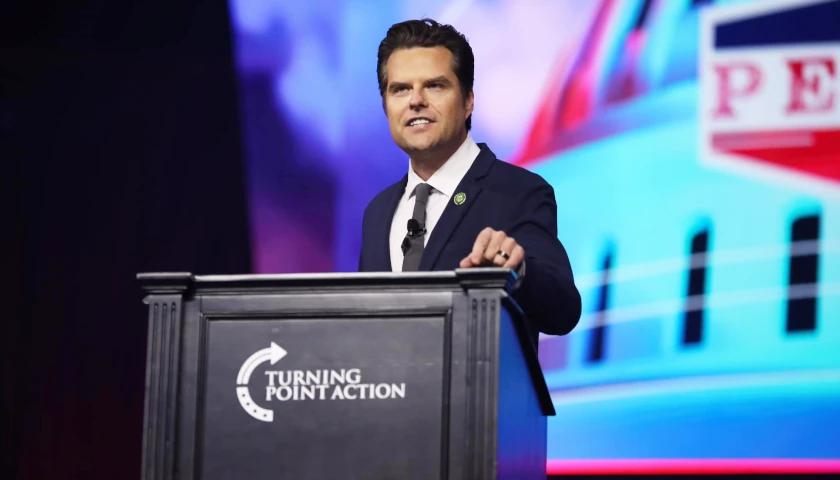by Daniel J. Smith
If Joe Biden sticks to his campaign promises, student loan forgiveness will be part of his plan as president to combat our shutdown in economic activity. Forgiving student loans would be ill-advised during normal times. It is downright irresponsible pandering during our current situation.
Forgiving student loans fails the basic test of elementary economics. It would primarily benefit the wealthy and be ineffective at stimulating the economy.
This isn’t just the musings of a pro-capitalism zealot (guilty as charged, I happen to be in favor of the human well-being, life expectancy, and life satisfaction that come with economic freedom, especially for minorities and the poor). There is a wide consensus on this issue among experts. Let’s break it down into simple terms for politicians seeking a crash course in macroeconomics.
Only a third of Americans hold a college degree. And they tend to be the wealthiest Americans. Once they graduate with their degrees they can expect to earn $1 million more than Americans with just a high school diploma over the course of their careers. Furthermore, it is well-established that the wealthiest college graduates hold the vast majority of student loans. A full 56 percent of student loan debt is held by Americans with graduate degrees. Furthermore, twenty percent of student loan debt is held by those with doctorate or professional degrees, who enjoy median earnings of $106,000. Thus, student loan forgiveness is what economists call a “regressive” policy – it disproportionately benefits the wealthy. It is also unfair to those who exhibited the financial discipline to pay back the loans they agreed to.
Certainly, there are students with unmarketable degrees out there struggling to make student loan payments. This is not the right policy to address that problem. Universities can, and should, do a better job of advising students about career prospects and actively shutter programs where graduates fail to obtain gainful employment. If we bail out these students, however, we will only encourage more poor decision-making in degree selection as students come to expect these bailouts every time there is a downturn.
When it comes to the argument that student loan forgiveness would stimulate the economy, one has to keep in mind that the economic justification for a stimulus is that it will spark spending. To assess the COVID downturn in econ-speak, there was a fall in aggregate supply caused by shutdowns. Lost income due to layoffs, firings, and general uncertainty spilled over into a fall in aggregate demand. The thing is, most well-to-do college graduates were able to retain their jobs by working from home. They also were more likely to have the savings and access to credit to weather the downturn without a fall in living standards. That is why paying off their student loans would be a very ineffective and expensive way to attempt to boost aggregate demand.
If student loan forgiveness fails a basic test of economics, why is it on President-Elect Biden’s agenda? Indebted college graduates have been lobbying for quite some time to relieve themselves of the financial obligations they voluntarily incurred, with the intention, of course, of continuing to reap the financial benefits of their education. The 42 million Americans with student loans, primarily young voters, were an important demographic in the recent presidential election. Politicians know where their bread is buttered and they often deliver on their campaign promises to key voter blocs even to the determinant of the financial health of our nation.
– – –
Daniel J. Smith is the Director of the Political Economy Research Institute at MTSU and an Associate Professor of Economics in the Jones College of Business. He is also the Senior Fellow for Fiscal and Regulatory Policy at the Beacon Center of Tennessee. Follow him on Twitter: @smithdanj1






Where do universites derive their power to raise tuition at 2x and 3x the rate of inflation? From student loans which cannot be bankrupted, that’s where.
Where do universities get the money to sustain their Marxist professors and their racist, ant-American “critical studies” courses, course which deliver to their recipients nothing but how-to-hate ? From student loans which cannot be bankrupted.
What appears to be driving this attitude on your part is the desire to stick it to the 22 year old, blue-haired revolutionaries who majored in Grievance Studies.
That’s short term thinking.
What you have to understand is if all these loans went bankrupt, the banks would stop making them.
That would in turn defund the universities and the useless majors which produce nothing in the way of economic value would have to find another home, or evaporate.
The cruelest irony here is the Marxist professors are selling their students into a lifetime of literal indentured servitude, destroying their chances to achieve material wellness or to start familes. All of that to fund those same Marxists professors’ comfortable retirements, vacations, summer homes and gold-plated health-care packages.
Yes the thought of teaching the blue-haried grievance farmers a lesson about economics is delicious. OK. But the strategically wise move is to make the university accountable to the market for the majors they offer.
There is no other debt which is unbankruptable. There is no moral reasoning for strudent loans to be so distinguished- other than we’ve arrived at this point and why should the taxpayer pay the debt ?
If you don’t want the US taxpayer to foot the bill, there’s always the universties’ expansive culpability. It was they who raised tuition at multiples of inflation year over year. It was they who created layer upon layer of deans and provosts to oversee their student’s every interaction. It was they who built the towering steel and glass momuments to their athletic departments. It was they who lobbied for the unbankruptability of the loans in the first place.
Let’s saddle them with a 50 year schedule to pay back all those failed loans.
Then we’d be teaching the right people the right economic lesson in the right way.
If you want people to turn away from socialism, then you need to release them from the 500 lb rock around their neck and give them some reason to believe that by working, you can get ahead.